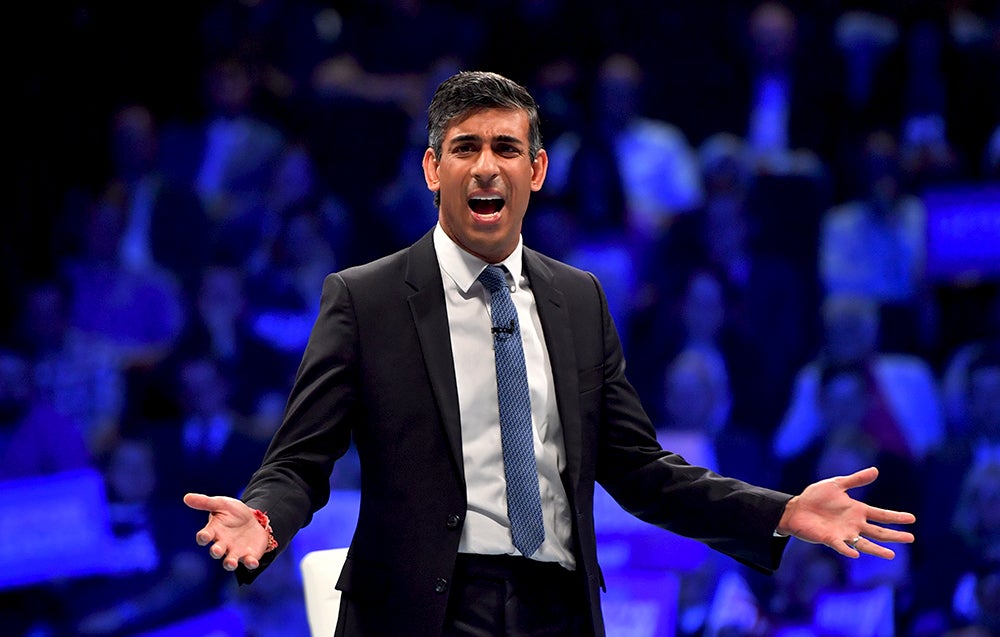
For as long as I’ve been paying attention to politics people have been saying that British elections are becoming more presidential. I don’t think that’s as significant as some think, but personalities do play a prominent part in shifting votes. If the UK was to vote solely on its party leaders, then the 2024 election would be a close-run thing.
Right now, Labour’s Keir Starmer leads Rishi Sunak by four points in terms of likeability. Yet a substantial, though not overwhelming, number still dislike both of them.
For the leader of the opposition to receive such a mixed reception with voters three years into the role can be read both positively and negatively. The truth is, many still don’t know what to think about Starmer. At this point in his leadership, David Cameron was running away with it: 51 per cent of Britons liked him. Likewise Tony Blair was hitting gargantuan numbers during his leadership. Neil Kinnock, though, amassed – according to Gallup – a 41 per cent disapproval rating three years into his leadership of Labour leader, and 52 per cent in the fourth year. Jeremy Corbyn… isn’t worth writing about.
[See also: Britain Predicts: who will win the next election?]
Successful leaders should poll better than their counterparts. But it doesn’t work in isolation. James Callaghan outpolled Margaret Thatcher on likeability and competence right until election day in 1979, but that didn’t stop voters booting Labour out. It floundered on voting intention and the economy and, consequently, it floundered out of office.
Nevertheless, the narrow state of play between Sunak and Starmer is worthy of note. How much does it matter? Labour has a poll lead of landslide proportions. Labour is ahead on the economy, the first time since before the 2008 financial crisis. If it stays that way, the only risk for Labour is Brand Starmer. And the only metric working for the Tory party is Brand Sunak. This is why Labour strategists thought to take aim at Sunak’s integrity with controversial, outsized poster campaigns.
[See also: Will an October 2024 election give the Tories time to recover?]
But why does Brand Sunak work?
To put it all into context, Sunak has been at the top of British politics since before the coronavirus pandemic; name recognition for him is higher than it is for Starmer. The numbers for Sunak have occasionally been horrendous, but are not yet as bad as they were for Gordon Brown or John Major. Despite seeming like an archetypal Tory, he leads the party without the same Tory baggage.
The Prime Minister is a technocrat, but perhaps not in the sense that Starmer is a technocrat: in the public’s view, Sunak has some quantifiable successes in office that he can point to. His popularity with voters took an upward turn because of the Windsor framework – the post-Brexit trade relations with the EU in Northern Ireland. Labour’s lead is down, part of which I attribute to Conservative Party noise over immigration which may have attracted 2016 Leave voters back to the fold. Sunak himself is more disliked than liked, but considering how premiers usually do, it’s going OK.
[See also: Do voters care about trans rights?]
But is it enough? Can it save the Tories at the polls? However competent a technocrat he may be, Sunak cannot outrun the two in three voters clamouring for a change of party in government. He cannot gloss over the vast public discontent with the status quo. He may be more trusted than Starmer on the economy. That isn’t nothing. But his party isn’t. The next election is still Labour’s to lose.
[See also: Keir Starmer’s mediocre ratings won’t prevent a Labour victory]


